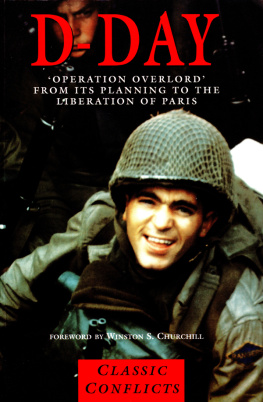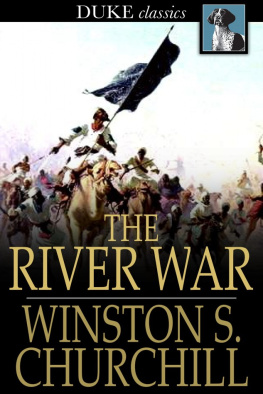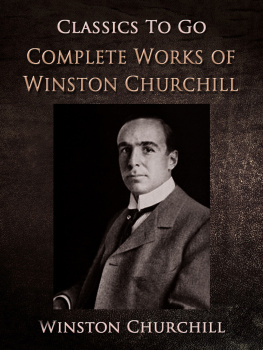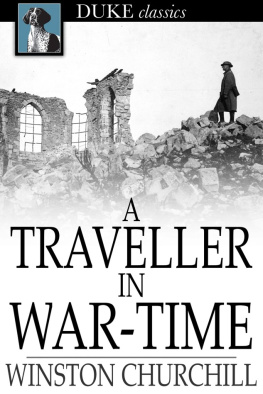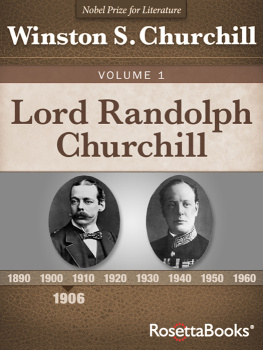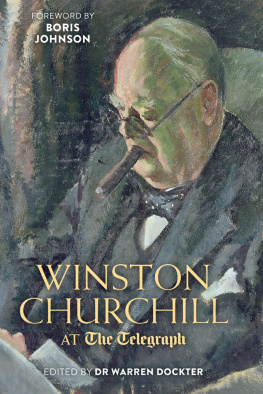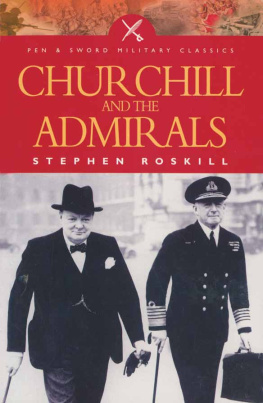Winston Churchill - The Grand Alliance
Here you can read online Winston Churchill - The Grand Alliance full text of the book (entire story) in english for free. Download pdf and epub, get meaning, cover and reviews about this ebook. publisher: RosettaBooks, genre: Romance novel. Description of the work, (preface) as well as reviews are available. Best literature library LitArk.com created for fans of good reading and offers a wide selection of genres:
Romance novel
Science fiction
Adventure
Detective
Science
History
Home and family
Prose
Art
Politics
Computer
Non-fiction
Religion
Business
Children
Humor
Choose a favorite category and find really read worthwhile books. Enjoy immersion in the world of imagination, feel the emotions of the characters or learn something new for yourself, make an fascinating discovery.

- Book:The Grand Alliance
- Author:
- Publisher:RosettaBooks
- Genre:
- Rating:4 / 5
- Favourites:Add to favourites
- Your mark:
- 80
- 1
- 2
- 3
- 4
- 5
The Grand Alliance: summary, description and annotation
We offer to read an annotation, description, summary or preface (depends on what the author of the book "The Grand Alliance" wrote himself). If you haven't found the necessary information about the book — write in the comments, we will try to find it.
The Grand Alliance — read online for free the complete book (whole text) full work
Below is the text of the book, divided by pages. System saving the place of the last page read, allows you to conveniently read the book "The Grand Alliance" online for free, without having to search again every time where you left off. Put a bookmark, and you can go to the page where you finished reading at any time.
Font size:
Interval:
Bookmark:
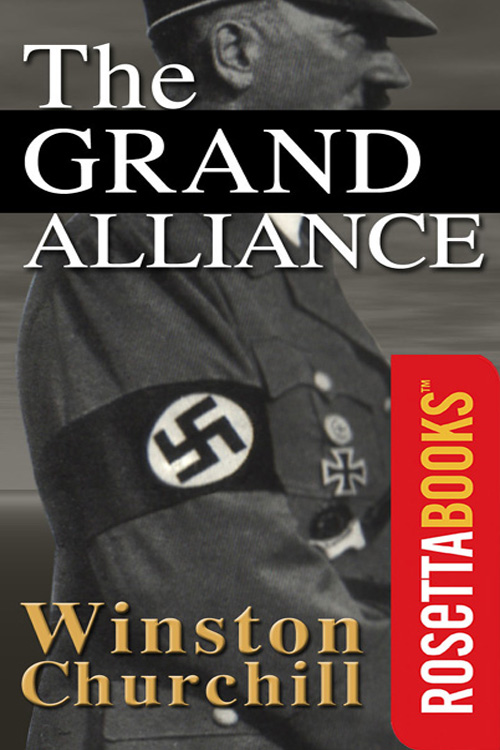
The Grand Alliance
Winston S. Churchill
The Grand Alliance
Copyright 1948 by Winston Churchill
Cover art to the electronic edition copyright 2002 by RosettaBooks, LLC
All rights reserved. No part of this book may be used or reproduced in any manner whatsoever without written permission except in the case of brief quotations embodied in critical ayrticles and reviews.
Electronic editions published 2002, 2010 by RosettaBooks LLC, New York.
ISBN ePub edition: 9780795311444

In War: Resolution
In Defeat: Defiance
In Victory: Magnanimity
In Peace: Goodwill
I MUST AGAIN ACKNOWLEDGE the assistance of those who helped me with the previous volume, namely, Lieutenant-General Sir Henry Pownall, Commodore G. R. G. Alien, Colonel F. W. Deakin, and Sir Edward Marsh, Mr. Denis Kelly and Mr. C. C. Wood. I have also to thank the very large number of others who have kindly read these pages and commented upon them.
Lord Ismay has continued to give me his aid, as have my other friends.
I record my obligation to His Majestys Government for permission to reproduce the text of certain official documents of which the Crown Copyright is legally vested in the Controller of His Majestys Stationery Office. At the request of His Majestys Government on security grounds, I have paraphrased some of the telegrams published in this volume. These changes have not altered in any way the sense or substance of the telegrams
THIS VOLUME, like the others, claims only to be a contribution to the history of the Second World War. The tale is told from the standpoint of the British Prime Minister, with special responsibility as Minister of Defence for military affairs. As these came directly to some extent into my hands, British operations are narrated in their scope and in some detail. At the same time it would be impossible to describe the struggles of our Allies except as a background. To do full justice these must be left to their own historians, or to later and more general British accounts. While recognising the impossibility of preserving proportion, I have tried to place our own story in its true setting.
The main thread is again the series of my directives, telegrams, and minutes upon the daily conduct of the war and of British affairs. These are all original documents composed by me as events unfolded. They therefore constitute a more authentic record and give, I believe, a better impression of what happened and how it seemed at the time than any account which I could write now that the course of events is known. Although they contain expressions of opinion and forecasts which did not come true, it is by them as a whole that I wish my own share in the conflict to be judged. Only in this way can the reader understand the actual problems we had to face as defined by the knowledge then in our possession.
Space would not allow, nor indeed in many cases have I the right, to print the replies, which very often took the form of lengthy departmental memoranda. I have therefore been careful to avoid, so far as I can, throwing blame on individuals. Where possible I have endeavoured to give a summary of replies to telegrams. In the main however the documents which are printed tell the tale.
We are again dealing with war on the giant scale, and the battle on the Russian front involved as many divisions on both sides as were engaged in the Battle of France. At every point along a far longer front the great masses engaged, with slaughter incomparable to anything which occurred elsewhere during the war. I cannot attempt to do more than refer to the struggle between the German and the Russian Armies as the background of the actions of Britain and the Western Allies. The Russian epic of 1941 and 1942 deserves a detailed and dispassionate study and record in the English language. Even though no facilities for foreigners to narrate the Russian agony and glory might be accorded, the effort should be made. Nor should this impulse be chilled by the fact that the Soviet Government have already claimed all the honour for themselves.
Hitlers invasion of Russia brought to an end the period of almost exactly a year during which Great Britain and her Empire stood alone, undismayed, and growing continually in strength. Six months later the United States, violently assaulted by Japan, became our ally for all purposes. The ground for our united action had been prepared beforehand by my correspondence with President Roosevelt, and it was possible to forecast not only the form of our operations but also their sequence. The effective combination of the whole English-speaking world in the waging of war and the creation of the Grand Alliance form the conclusion to this part of my account.
WINSTON S. CHURCHILL
CHARTWELL,
WESTERHAM,
KENT
January 1, 1950

Book I
Germany Drives East
Book II
War Comes to America
How the British fought on
with Hardship their Garment
until
Soviet Russia and the United States
were drawn
into the Great Conflict
Book I
GERMANY DRIVES EAST
Book II
WAR COMES TO AMERICA
GERMANY DRIVES EAST
THE DESERT AND THE BALKANS
The Onset of Events in 1941 A Secure Foundation The Hinge of the War False Dawn in the Desert My War Appreciation of January 6 A Firm Flank at Benghazi The Campaign in Abyssinia The Spanish Riddle Vichy Obscurities Threat of German Air-Power in Sicily Overriding Danger in the Balkans The Need to Support Greece Our Main Task Hitlers New Year Thoughts His Letter to Mussolini, December 31, 1940 Coincidence of Our View about Spain Hitlers Conclusions about Russia and Africa Mr. Edens Anxieties Need to Limit Our Desert Advance General Smuts Telegram of January 8 Directions to General Wavell of January 10 Wavell Flies to Athens My Telegram to Wavell of January 26 My Reply to General Smuts of January 12.
L OOKING back upon the unceasing tumult of the war, I cannot recall any period when its stresses and the onset of so many problems all at once or in rapid succession bore more directly on me and my colleagues than the first half of 1941. The scale of events grew larger every year; but the decisions required were not more difficult. Greater military disasters fell upon us in 1942, but by then we were no longer alone and our fortunes were mingled with those of the Grand Alliance. No part of our problem in 1941 could be solved without relation to all the rest. What was given to one theatre had to be taken from another. An effort here meant a risk there. Our physical resources were harshly limited. The attitude of a dozen Powers, friendly, opportunist, or potentially hostile, was unknowable. At home we must face the war against the U-boats, the invasion threat, and the continuing Blitz; we had to conduct the group of campaigns in the Middle East; and, thirdly, to try to make a front against Germany in the Balkans. And we had to do all this for a long time alone. After shooting Niagara we had now to struggle in the rapids. One of the difficulties of this narrative is the disproportion between our single-handed efforts to keep our heads above water from day to day and do our duty, and the remorseless development of far larger events.
Font size:
Interval:
Bookmark:
Similar books «The Grand Alliance»
Look at similar books to The Grand Alliance. We have selected literature similar in name and meaning in the hope of providing readers with more options to find new, interesting, not yet read works.
Discussion, reviews of the book The Grand Alliance and just readers' own opinions. Leave your comments, write what you think about the work, its meaning or the main characters. Specify what exactly you liked and what you didn't like, and why you think so.

